This conference will explore recent breakthroughs in understanding the tumor ecosystem and how its various components influence cancer development, progression, diagnosis, and treatment.
We will explore:
- The intricate relationships among tumor cells, stromal cells, immune cells, and microorganisms in primary and metastatic tumor microenvironments.
- How tumors interact with host systems, such as the immune, circulatory, and nervous systems, as well as metabolic processes.
- How cutting-edge technologies, including advanced cancer models, omics techniques, computational methods, and clinical research, offer vital insights into therapeutic responses and resistance.
- Innovative treatment strategies.
We will bring together world experts to present the most exciting preclinical, translational and clinical breakthroughs across disciplines and discuss how current knowledge on the tumor ecosystem is being translated from the bench to the patient’s bedside and back to the bench for further research. Join us for engaging sessions exploring these critical developments shaping the future of cancer treatment, and networking opportunities.
Event details
Keynote Speakers

Myriam Chalabi
Medical Oncologist. Dept. Of Gastrointestinal Oncology
Netherlands Cancer Institute, Amsterdam, Netherlands
After graduating Medical School (2008) Myriam Chalabi did her residency in internal medicine/medical oncology. In 2016 she became staff member at the Netherlands Cancer Institute in Amsterdam as a Gastrointestinal Oncologist and clinician scientist. In 2022 she was named one of the 11 early career researchers to watch by Nature Medicine.
She is the lead investigator (PI) of several neoadjuvant immunotherapy trials in gastrointestinal cancers, including the globally renowned NICHE study, in which patients with colon cancers were found to have impressive responses after a short duration of neoadjuvant immunotherapy. Her research focuses on early innovative combination immunotherapy trials with a strong focus on translational research to better understand the drivers of response in these tumors and find novel immunotherapy combinations. Her main goal is to improve immunotherapy for patients with gastrointestinal cancers.

Mikala Egeblad
Co-leader of the Cold Spring Harbor Laboratory Cancer Center Program on Cellular Communication in Cancer
National Cancer Institute, USA
Speakers

Amanda Lund
Principal Investigator and Associate Professor, Ronald O. Perelman Department of Dermatology
NYU Langone Health, New York, USA

Tullia Bruno
Assistant Professor, Department of Immunology
University of Pittsburgh and UPMC Hillman Cancer Center, Pennsylvania, USA
Tullia C. Bruno, PhD, is an Assistant Professor in the Department of Immunology at the University of Pittsburgh and a faculty member in the Tumor Microenvironment Center and the Cancer Immunology and Immunotherapy Program at the UPMC Hillman Cancer Center. She obtained her Ph.D. in Immunology from Johns Hopkins in 2010 and completed her postdoctoral fellowship at the University of Colorado in 2015—both with a focus in tumor immunology. While Dr. Bruno’s PhD training focused on inhibitory receptors on intertumoral T cells, she became interested in the role of B cells and tertiary lymphoid structures (TLS) in the tumor microenvironment (TME) during her postdoctoral fellowship and has built her independent research program around understanding intertumoral B cell and TLS function in multiple human cancers and physiologically relevant murine models. Because Dr. Bruno’s research lab has an overt focus on studying immunity within cancer patients, her research is highly translational with the potential for future clinical trials targeting B cells and TLS. Finally, given Dr. Bruno's cutting-edge work on analyzing TLS with multispectral imaging and spatial transcriptomics, she is becoming an emerging leader for spatial biology techniques. Dr. Bruno is actively involved in the UPMC Hillman community, and is an advocate for women in science, as is evidenced by her previous role as chair of the UPMC Hillman Women's Initiatives Taskforce and her contributions to the Society of Immunotherapy's Women in Immunotherapy group.

Frank Winkler
Managing Senior Physician in the Department of Neurology
University Hospital Heidelberg, Heidelberg, Germany
Frank Winkler studied medicine in Hamburg, Freiburg and London, specialized in neurology at the LMU Munich in Germany, spent a 2 year postdoc at Harvard, and was appointed to Heidelberg in 2010. He is Professor for Neuro-Oncology at Heidelberg University’s Faculty of Medicine and also Managing Senior Physician in the Department of Neurology. His research group Experimental Neurooncology is located in the German Cancer Research Center (DKFZ) in Heidelberg.
The laboratory led by Frank Winkler employed neuroscientific methods to develop a fundamentally new understanding of the most malignant brain tumours in adults, glioblastomas and brain metastases. Key discoveries of this work have helped to establish the new research field of Cancer Neuroscience. Those include malignant multicellular tumor networks that are highly functional and resistant, driven by neurodevelopmental factors including pacemaker-like tumor cells in network hubs, and excitatory synapses between brain neurons and various incurable brain tumor entities that fuel brain tumor growth, invasion and metastasis.
Frank Winkler translates his pioneering work in Cancer Neuroscience into novel, neuroscience-instructed cancer therapies. He has initiated clinical trials that investigate how disconnection of neuro-cancer networks can better control brain tumors in humans.

Nikhil Joshi
Associate Professor Tenur
Yale Medical School, Connecticut, USA

Amy Moran
Associate Professor of Cell, Developmental and Cancer Biology, School of Medicine
Oregon Health & Science University, Oregon, USA

Drew Pardoll
Abeloff Professor of Oncology, Medicine, Pathology and Molecular Biology and Genetics
Johns Hopkins University, Maryland, USA
Dr. Pardoll is an Abeloff Professor of Oncology, Medicine, Pathology and Molecular Biology and Genetics at the Johns Hopkins University, School of Medicine. He is the founding Director of the Bloomberg~Kimmel Institute for Cancer Immunotherapy and Director of the Cancer Immunology Program at the Sidney Kimmel Comprehensive Cancer Center at Johns Hopkins. Dr. Pardoll attended Johns Hopkins University, where he earned his M.D., Ph.D., in 1982 and completed his Medical Residency and Oncology Fellowship in 1985. He then worked for three years at the National Institutes of Health as a Medical Staff Fellow. Dr. Pardoll has published more than 450 papers, collectively cited over 170,000 times, as well as over 20 book chapters on the subject of T cell immunology and cancer immunotherapy. He is a member of the National Academy of Inventors, and the National Academy of Medicine. He is a Fellow of the American Association of Cancer Research and the Society of Immunotherapy of Cancer. He has served on the editorial board of the Journal of the National Cancer Institute and Cancer Cell, and has served as a member of scientific advisory boards for the Cancer Research Institute, the American Association of Clinical Oncology, the American Association of Cancer Research, the University of Pennsylvania Human Gene Therapy Gene Institute, Biologic Resources Branch of the National Cancer Institute, Harvard-Dana Farber Cancer Center, as well as 12 biotechnology companies, J&J and Amgen. He currently serves on the Board of Directors of Clasp Therapeutics and Dracen therapeutics. Dr. Pardoll is a founder of 10 companies over the past decade. He holds roughly 80 patents. Dr. Pardoll has made a number of basic advances in Cellular Immunology, including the discovery of gamma - delta T cells, NKT cells and interferon-producing killer dendritic cells. Over the past two decades, Dr. Pardoll has studied molecular aspects of dendritic cell biology and immune regulation, particularly related to mechanisms by which cancer cells evade elimination by the immune system. These include the discovery of PD-L2, one of two ligands for PD-1, and the T cell checkpoints LAG3 and PVRIG leading to ongoing clinical development of blocking antibodies to these molecules. He also identified two key molecules – YAP and ActivinR1c as key inducers of Treg suppression, leading to programs to inhibit these clinically. He also elucidated the role of Stat3 signaling in tumor immune evasion and in Th17 development, leading to the discovery that Stat3-driven Th17 responses promote carcinogenesis. Stat3 antisense drugs are currently in clinical testing. He was one of the leaders of the pioneering clinical trials that established the anti-cancer activity of antibodies blocking the PD-1 pathway; the marketed anti-PD-1/L1/L2 antibodies now collectively generate $45-50B/year. The first anti-LAG3 antibody was FDA approved and is expected to generate $3-4B by 2026.

Matt Vander Heiden
Director, Koch Institute for Integrative Cancer Research
MIT, Massachusetts, United States

Michael Angelo
Associate Professor of Pathology
Stanford University School of Medicine, California, USA

Ping-Chih Ho
Member, Ludwig Institute for Cancer Research and Professor
Professor, University of Lausanne, Vaud, Switzerland

Selma Masri
Associate Professor, Department of Biological Chemistry
University of California, Irvine, California, USA
Dr. Masri’s research interests are aimed at understanding how disruption of circadian rhythms results in tumor initiation and progression. The circadian clock is our biological pacemaker that governs endocrine, metabolic, and behavioral rhythms within a 24-hour period, and disruptions of these biological rhythms results in detrimental diseases including cancer. The Masri lab is defining how genetic and environmental disruption of the circadian clock alters tumorigenesis, a question that is particularly relevant to early-onset cancers, particularly colorectal cancer. We are interested in how the circadian clock regulates intestinal stem cell survival, proliferation, metabolism, and properties that govern the Epithelial to Mesenchymal transition (EMT). These research questions are being addressed using genetically engineered mouse models of colorectal cancer (developed by the Masri lab) and intestinal organoid cultures where we defined how clock disruption regulates Wnt/B-Catenin signaling. Also, the Masri lab has contributed to the understanding of how the circadian clock regulates tumor immunity and immunosuppression through the action of myeloid-derived suppressor cells or MDSCs. The broader impact of this work extends beyond colorectal cancer to define how the circadian clock modulates key signaling pathways that have critical implications in the tumor microenvironment that impinge on metabolism, stemness, and immune regulation.

Cedric Blanpain
Professor of Stem Cell and Developmental Biology
Université Libre de Bruxelles (ULB), Belgium

Arabella Young
Assistant Professor, Department of Pathology
Huntsman Cancer Institute, University of Utah, Salt Lake City, Utah
Dr. Arabella Young, Ph.D., is an Assistant Professor in the Department of Pathology and Investigator at the Huntsman Cancer Institute at the University of Utah. Following graduate training in tumor immunology at the University of Queensland, she performed her postdoctoral studies at the Diabetes Center at the University of California San Francisco.
Dr. Young’s research aims to improve our understanding of the interaction between different immune-mediated diseases, which have the potential to influence treatment outcomes for patients with cancer. Her lab has established syngeneic tumor models in autoimmune-prone mice to improve mechanistic understanding of the relationship between anti-tumor immunity and immunotoxicity in response to cancer immunotherapies. Additionally, she is advancing modeling approaches that incorporate the impact of medication exposure for comorbidities alongside cancer immunotherapy efficacy, in an effort to optimize treatment outcomes for patients.

David Lyden
Professor
Weill Cornell Medicine, School of Medical Sciences, New York, USA
Dr. Lyden completed his M.D. at Brown University, Ph.D. at the University of Vermont, Residency at Duke University, postdoctoral fellowship at Memorial Sloan Kettering Cancer Ceneter; currently, he is the Stavros S. Niarchos Professor of Pediatrics and Cell and Developmental Biology at Weill Cornell Medicine. He defined the concept of the "pre-metastatic niche" (PMN), where tumor-secreted factors recruit bone marrow-derived progenitor cells to distant organ sites to provide a platform for metastasis. Dr. Lyden’s work underscores the systemic nature of cancer. As such, Dr. Lyden demonstrated that tumor-derived extracellular vesicle (EV)-mediated crosstalk initiates the PMN and coordinates metastatic progression. He identified key proteins and nucleic acids, specifically double stranded DNA, in EVs and demonstrated their systemic role in thrombosis, fatty liver metabolic dysfunction, and immune dysregulation. He has defined tumor EV integrins in organotropic metastasis, answering in part Stephen Paget’s “seed and soil” hypothesis on organ-specific metastasis. Moreover, he identified a new particle named exomere, which packages distinct proteins, including metabolic enzymes, lipids, and glycans. He has identified novel EV biomarkers for cancer diagnosis and prognosis in patients with cancer.
Dr. Lyden is an elected Member of the Association of American Physicians (2021) and an elected Fellow of the American Association for the Advancement of Science (2022). Dr. Lyden is the recipient of the 2024 Princess Lilian Award for excellence in research and mentoring by the Belgium Royal Family, as well as the 2024 Paget-Ewing Award, the highest award by the Metastasis Research Society, and the National Institutes of Health R35 Outstanding Investigator Award, that supports his efforts to explore the systemic effects of metastatic cancer.

Marcus Goncalves
Director, Systemic Metabolism Research
NYU Langone Health, New York, USA
Marcus Goncalves is a physician scientist at NYU Langone Health in beautiful New York City. His lab is focused on the effects of diet and cancer on the host tissues that regulate systemic nutrient metabolism. As a practicing endocrinologist, he has helped to develop therapeutic and dietary strategies to modulate systemic glucose and insulin levels in patients with obesity, diabetes, and cancer. MG’s clinical practice focuses on the care of patients with metabolic diseases like insulin resistance, type 2 diabetes, low testosterone, and complications from cancer and cancer therapy like cachexia.

Humam Kadara
Professor, Department of Translational Molecular Pathology, Division of Pathology/Lab Medicine
The University of Texas MD Anderson Cancer Center, Texas, USA
Dr. Humam Kadara is professor in the Department of Translational Molecular Pathology at The University of Texas MD Anderson Cancer Center.. His laboratory made significant contributions to our understanding of the early pathogenesis of premalignant lesions and cancer. He authored and co-authored over 140 papers including in high impact journals like Nature, Nature Medicine, Cell, Cancer Cell, and Cancer Discovery. His group recently identified alveolar intermediary cells that function as progenitors of lung adenocarcinoma. Dr. Kadara received various awards in cancer research including two Lung Cancer Discovery Awards from the American Lung Association as well as multiple Investigator Research Awards from the Cancer Prevention and Research Institute of Texas. He was also awarded the prestigious Andrew Sabin Family Foundation Fellowship. Dr. Kadara’s laboratory is well-funded by the National Cancer Institute (NCI) to study various mechanisms governing cancer development. His group leads a project in the NCI Cancer Systems Biology Consortium (CSBC) to dissect spatiotemporal tumor-immune co-evolution at single-cell resolution and is also part of a Stand Up To Cancer (SU2C)-LUNGevity award to define a multi-dimensional atlas of lung premalignancy.

Linghua Wang
Professor, Department of Genomic Medicine
The University of Texas MD Anderson Cancer Center, Texas, USA
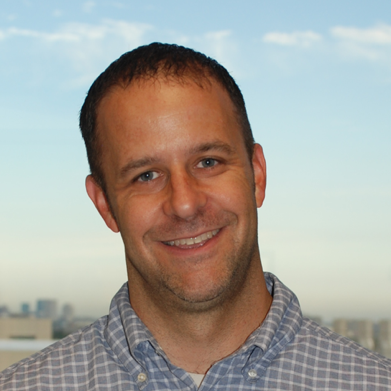
Benjamin Deneen
Professor and Dr. Russell J. and Marian K. Blattner Chair
Baylor College of Medicine, Texas, USA

Maria Rescigno
Vice Rector and Delegate for Research
Humanitas University, Rozzano, Italy
In 2016, she founded the startup Postbiotica, a spin-off of the University of Milan that exploits microbiota-derived metabolites as new pharmaceutical agents.

Katy Rezvani
Professor of Medicine
The University of Texas MD Anderson Cancer Center, Texas, USA
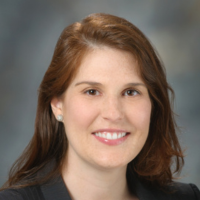
Carrie Daniel
Professor, Division of Cancer Prevention and Population Sciences
The University of Texas MD Anderson Cancer Center, Houston (Texas, USA)
Carrie R. Daniel-MacDougall, PhD, MPH, is a Professor in the Division of Cancer Prevention and Population Sciences at The University of Texas MD Anderson Cancer Center. She also holds appointments as a Regular Member in the Department of Quantitative Sciences at the UT Graduate School of Biomedical Sciences and as Adjunct Faculty in the Department of Epidemiology, Human Genetics, and Environmental Sciences at the UTHealth Houston School of Public Health. Her research program focuses on refining and informing evidence-based dietary recommendations across the cancer continuum—from prevention to improving outcomes during and after treatment. By integrating nutritional epidemiology with advanced quantitative methods, Dr. Daniel aims to better understand how diet and lifestyle influence cancer risk and survivorship.
Dr. Daniel earned her PhD and MPH in nutritional sciences and epidemiology and has built a career dedicated to advancing cancer prevention strategies through rigorous scientific inquiry. She is actively involved in professional organizations, grant-funded research, and collaborative projects that bridge nutrition, genetics, and public health. Her work not only contributes to academic knowledge but also informs clinical guidelines and public health policies aimed at reducing cancer burden and improving patient quality of life.
Short Talk Presenter
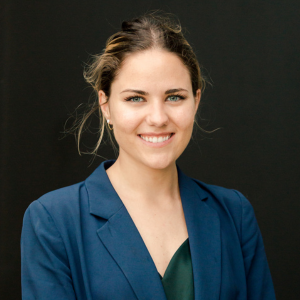
Olivia Smtih
MD/PhD Student
University of Minnesota, Minnesota, USA
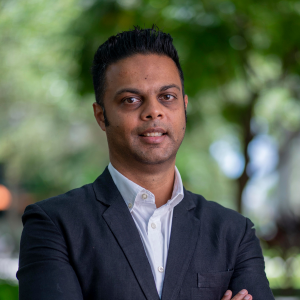
Viraj Sanghvi
Assistant Professor of Medicine
Columbia University Irving Medical Center, New York, USA
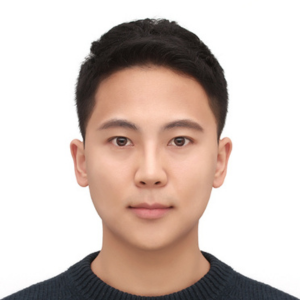
JungSeung Nam
Postdoctoral Research Scientist
Columbia University Medical Center, New York, USA
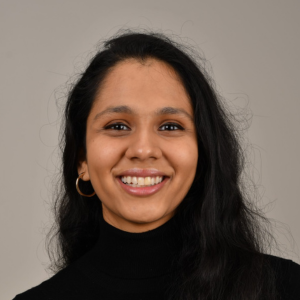
Shraddha Subramanian
Graduate Research Assistant
UTHealth Science Center at Houston, Texas, USA
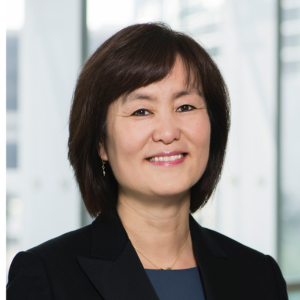
Kyuson Yun
Associate Professor, Department of Neurology
Houston Methodist Research Institute & Weill Cornell Medical College Cofounder of EMPIRI, Inc.
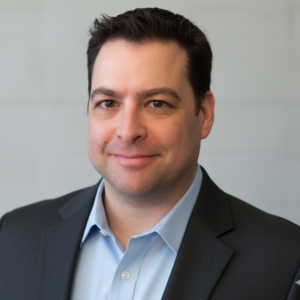
Andrew White
Associate Professor
Cornell University, New York, USA
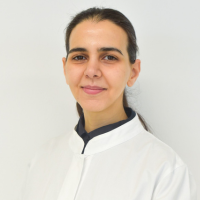
Adele Nicolas
Postdoctoral Fellow
CeMM Research Center for Molecular Medicine of the Austrian Academy of Sciences, Austria

